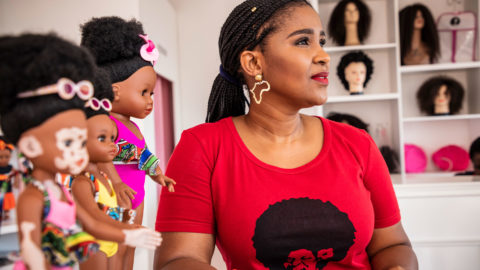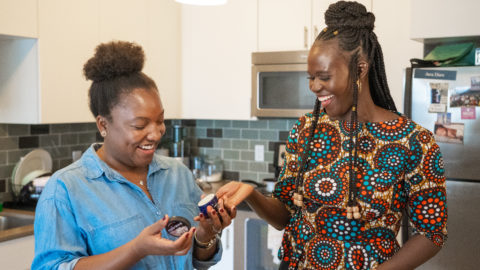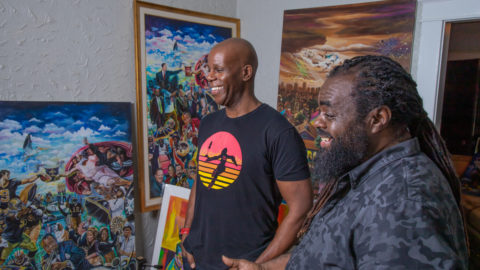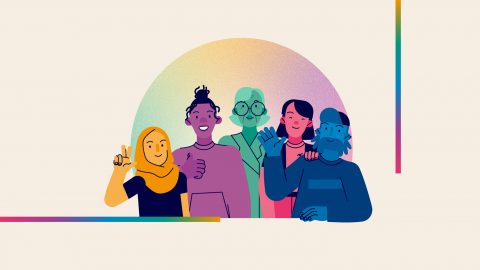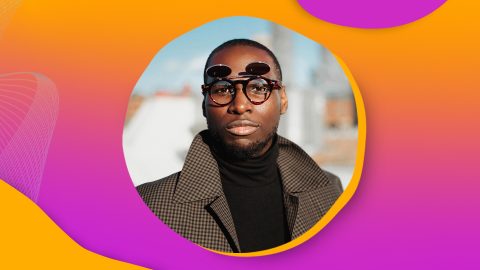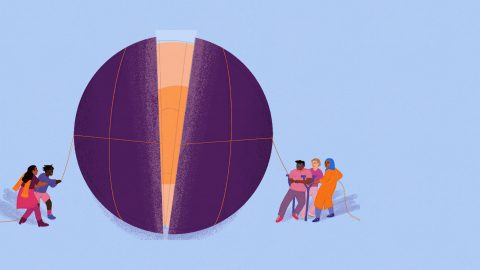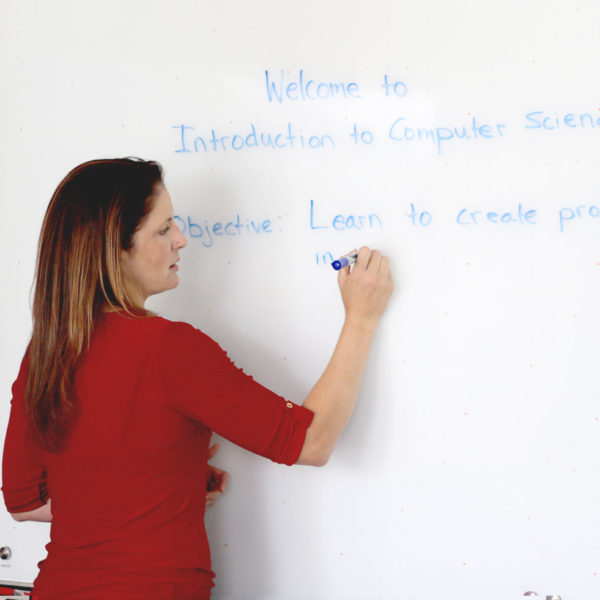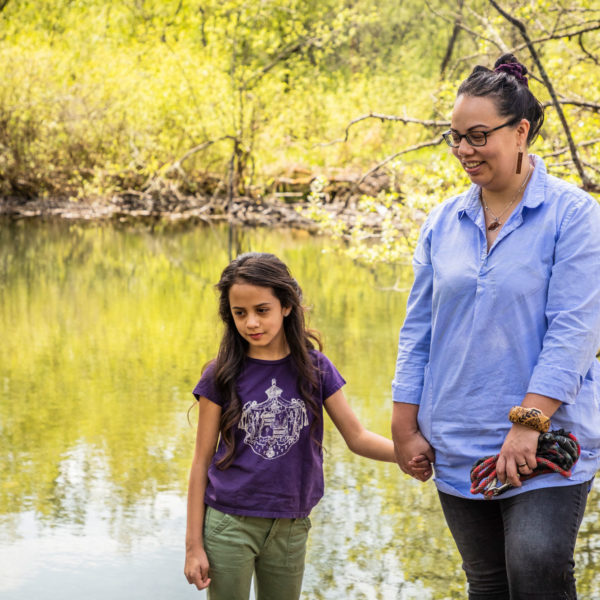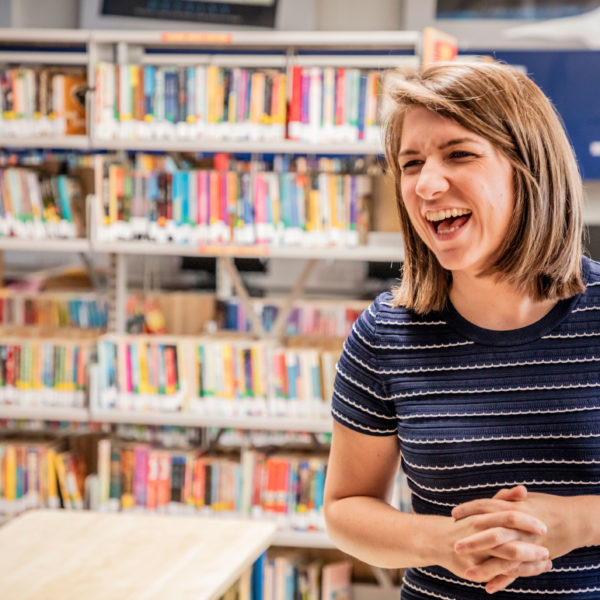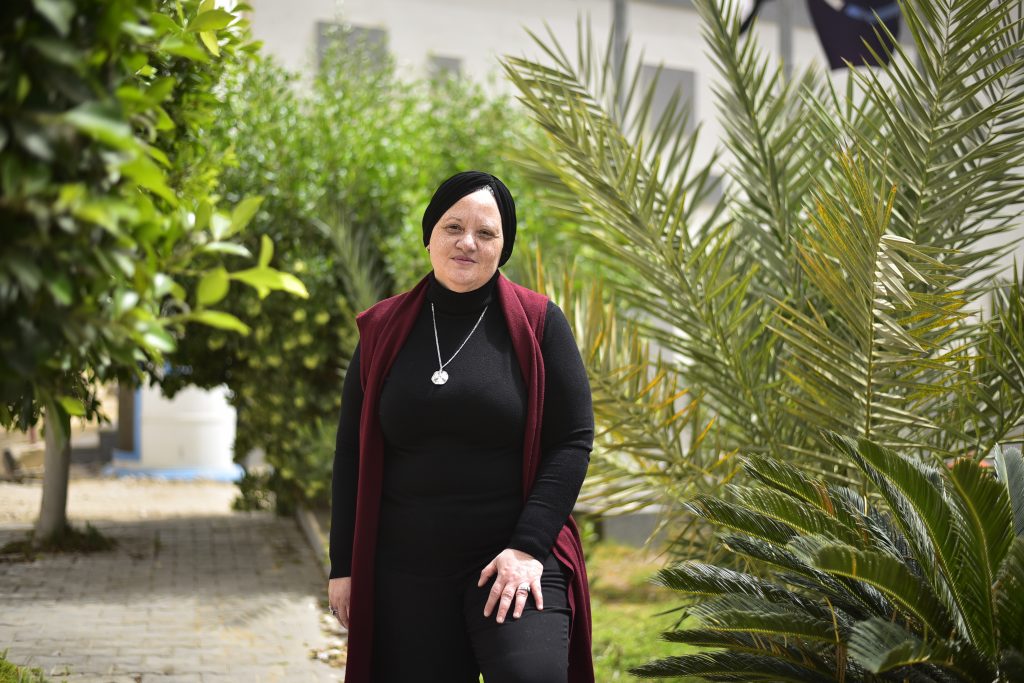
“I wanted to provide youth with hope and opportunity.”
Wanting to make lasting change in her own community, Ghada Khalifa took Microsoft’s mission to empower others to heart.
During the Egyptian revolution of 2011, urban youth groups across Egypt came together to call attention to the variety of societal challenges their communities faced, including economic issues such as high unemployment rates and low wages. With such a pervasive threat to the future of Egypt’s youth, major corporations began to advertise philanthropic programs that aimed to help.
Ghada Khalifa, who was Microsoft’s philanthropy lead for Egypt at the time, noticed a slew of campaigns aimed at supporting the people of Egypt. Despite these commitments, she said, life wasn’t necessarily getting better for the average urban Egyptian; tools and technology that would lead to jobs and empower people never materialized.
“Little to no money was put toward actual community development,” Khalifa said.
Microsoft wanted to take a different approach, using its expertise and technology resources to empower Egyptians so they could then—in turn—enact lasting change. The company assessed the situation, uncovered opportunities to truly add community value, and committed to creating programming that would prepare Egyptians to transform their communities through long-term solutions, Khalifa said.
This was the type of integrity that Khalifa had dared to wish for when she first interviewed with Microsoft for a role in antipiracy in 1996.
Khalifa had challenged her interviewer to better understand how antipiracy was being managed in Egypt. “In my religion, Islam, people who copied the software were committing a sin, so I was passionate about the company’s efforts to prevent it,” she said. “I would never accept a role because it simply drives a company’s bottom line. I would take it on because it was what I wanted to do for my country.”
She hoped her sense of responsibility to improve life for Egyptians—and her strong convictions—would be embraced.
Khalifa had first been introduced to Microsoft years earlier, while working for a friend’s computing magazine, when she had an opportunity to interview several Microsoft employees. She was invited to visit the company’s campus and learn more about its mission, which sparked her initial admiration for the company. “It was very transformative for me,” she said of that first exposure. “It gave me a long-term vision of how tech could impact life, especially in Africa, where tech can make a huge impact on our continent.”
Now, the moment to be a part of Microsoft’s work was right in front of her. But it would have to sync with her principles. Khalifa told the hiring team that if the company did anything that was non-supportive of Egypt, she could not sign on. Her hiring manager explained that that was the passion they desired in the candidate. It turned out that Microsoft valued Khalifa’s conviction and her commitment to Egypt and her culture. She was brought on board.
It was the beginning of a fruitful partnership between Microsoft and Khalifa, who would later move into a Philanthropies role, which would ultimately help to change the lives of hundreds of thousands of her fellow citizens.
Platform to make a difference
In response to the protests, Khalifa spearheaded and led an employment initiative to help Microsoft bring real value to the youth of Egypt. Her team looked at the community and government to identify opportunities for local youth, with the goal of reducing the unemployment rate. At the time there was a staggering growth in the youth population, while unemployment rates were nearly 10 times higher for urban youth with college educations than those who had completed only elementary school.
“We wanted to prevent them from going in a harmful direction, and encourage them toward a beneficiary one,” she said. “I wanted to provide the youth with hope and opportunity, while getting them out of poverty and preventing a stagnated future.”
Khalifa and her team partnered with the Ministry of Youth, the United Nations, universities, STEM schools, and non-governmental organizations (NGOs) to launch the initiative, part of Microsoft’s global YouthSpark program, which creates opportunities for youth around the world through technology.
The Egypt initiative kicked off in 2011, targeting underserved communities and their respective youth centers to provide IT training, web and app development courses, business training, freelance consulting company setup, and sessions on entrepreneurship. Khalifa explained that after the revolution, jobs were scarce, so the objective of her program was to create opportunity for the very youth who were in the streets during the protests.
“I spent seven months researching, attending research sessions, and meeting with a lot of the youth” to better understand the needs, then rollout the program in phases, she said.
Since 2012, the program has created 91,000 job opportunities with more than 1,400 employers in Egypt. Over 80,000 youth participants have attended career advisement sessions, and more than 400,000 youth have accessed digital, entrepreneurial, and employability skills training.
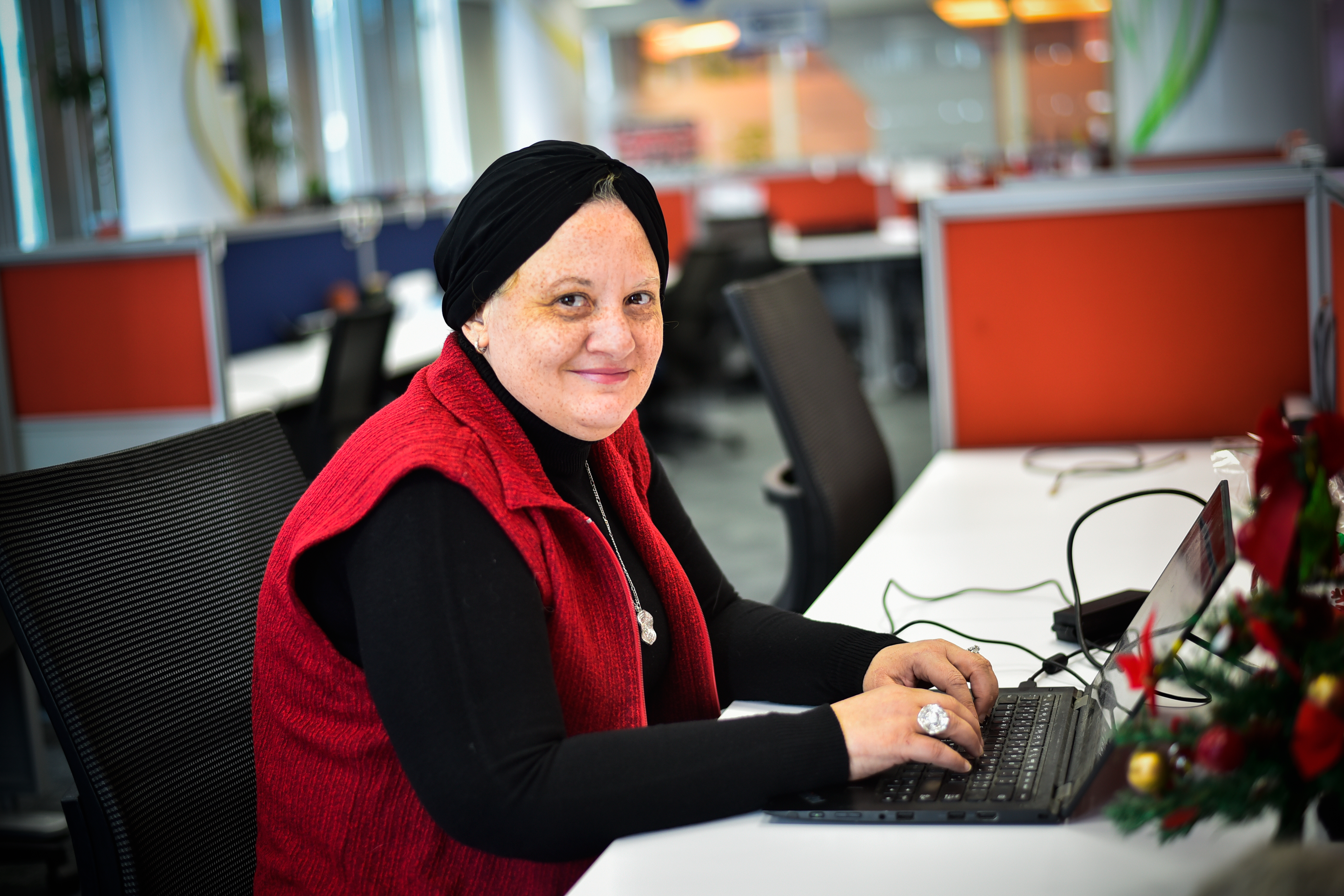
In addition to her work with the YouthSpark initiative, Khalifa was also a leader in Microsoft Egypt’s intern program. Rather than seek students from top-tier universities, she sought young adults who showed initiative, interest in tech, and came from less affluent backgrounds.
“It’s important that you allow them to innovate and drive out their capacity for leadership, then watch them excel,” she said. “We had to be willing to share the knowledge and take the risk. They learn from you, but you also learn from them.”



